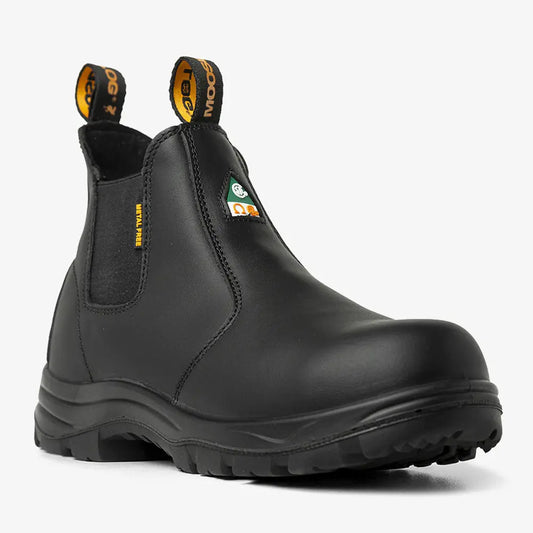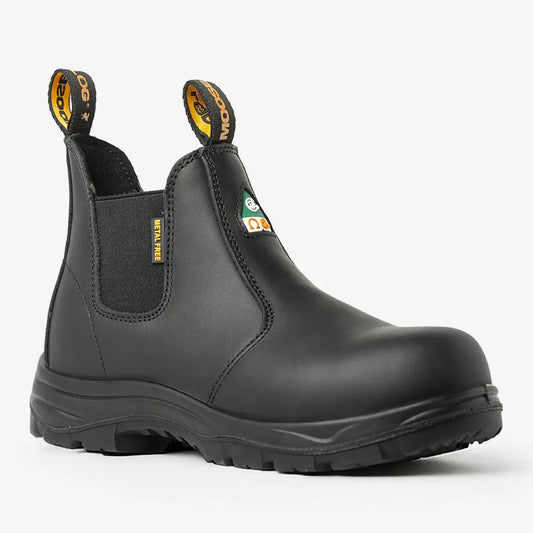Top 5 Industries That Require Steel Toe Boots
Steel toe boots are a critical part of personal protective equipment (PPE) in many jobs. Their purpose is simple but vital: protect your toes from impact, compression, and punctures on the job site. But which industries actually require them?
Here are five industries where CSA- or ASTM-certified steel toe boots are a mandatory standard—not just a suggestion.
1. Construction
Whether it’s residential, commercial, or infrastructure, the construction industry is the top sector requiring steel toe protection. Workers face constant exposure to:
- Falling tools and materials
- Heavy machinery
- Sharp debris
Most construction workers in Canada and the U.S. are required to wear CSA approved steel toe boots as part of their site safety compliance.
2. Warehousing & Logistics
From moving pallets to operating forklifts, warehouse workers and delivery drivers need foot protection. Steel toe boots are vital in preventing injuries caused by:
- Accidental drops of heavy boxes or equipment
- Toe stubs on pallet edges
- Forklift or dolly mishaps
Many logistics firms include certified safety boots in their onboarding policy.
3. Manufacturing & Industrial Work
Assembly line, fabrication, and factory jobs present numerous foot hazards:
- Sharp metal scraps
- Heavy components
- Hot surfaces or chemicals (in some environments)
Most facilities enforce CSA or ASTM steel toe boots, sometimes along with slip-resistant and puncture-resistant soles.
4. Oil, Gas, and Mining
These high-risk environments demand robust PPE from head to toe. Steel toe boots in these sectors often include:
- Heat resistance
- Slip resistance for muddy or oily ground
- Puncture-proof midsoles
Regulations in these sectors are among the strictest, often requiring very specific CSA class standards for protective footwear.
5. Utilities & Maintenance
Electricians, HVAC techs, plumbers, and other field service professionals must protect their feet while working on-site. Steel toe boots with EH (electrical hazard) ratings are often required to:
- Prevent injuries from accidental contact
- Offer non-conductive protection in dry conditions
- Support safety compliance for utility contracts
🏁 Conclusion
Steel toe boots are more than a personal choice—they're a requirement in many industries. If you work in construction, warehousing, manufacturing, oil & gas, or utilities, certified steel toe footwear is not optional. Always look for CSA or ASTM certification when selecting your next pair to ensure you're meeting the highest safety standards.






